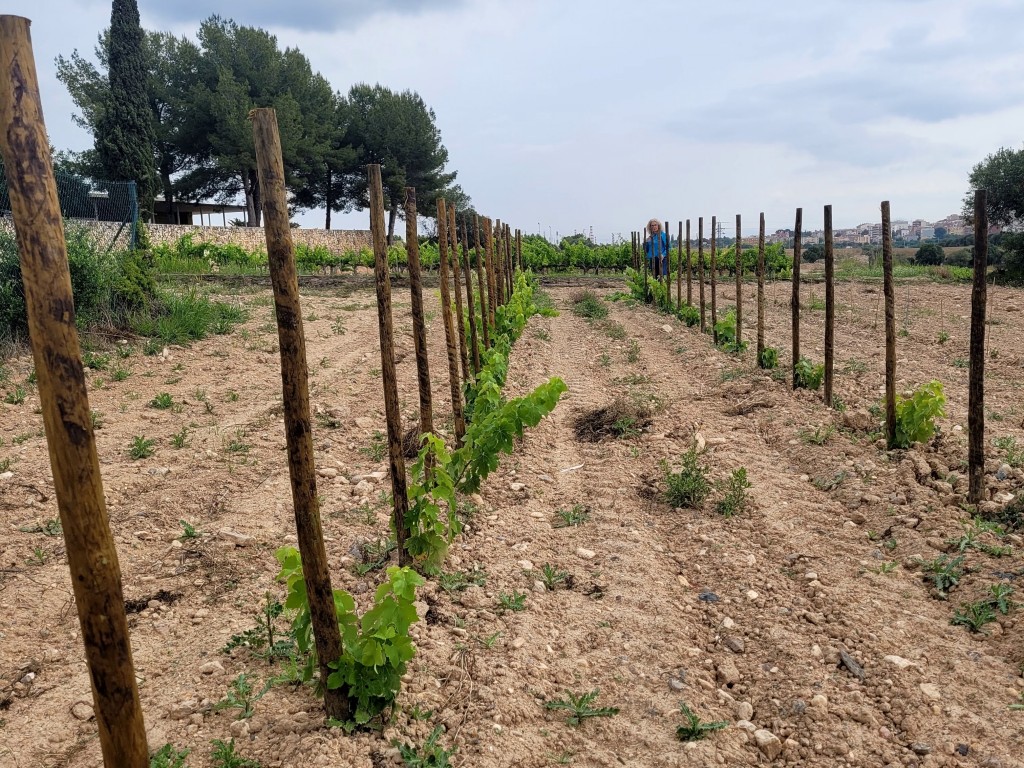10/07/2023
The URV’s experimental winery sets up a teaching vineyard
The initiative will enable oenology students to practise and familiarise themselves with training systems that are not common in Catalonia and to test alternative systems in response to climate change

The initiative will enable oenology students to practise and familiarise themselves with training systems that are not common in Catalonia and to test alternative systems in response to climate change
The URV’s Mas dels Frares, the winery and estate that the Faculty of Oenology uses for teaching purposes, has a new teaching vineyard. Lecturers from the faculty decided to set it up to provide students with an environment in which to try out techniques related with training and forming the plant when it is still small. The new vineyard not only shows students unusual approaches more typical of other countries but also provides a source of information on how different models of plant formation adapt to global warming and drought, which will drive future research at the department.
Training systems are the different methods used to shape the plant, the different ways of guiding the stem, in this case of a vine, from the time it is small until it starts to produce. The techniques used affect the morphology of the adult plant and, therefore, the amount of sunlight received by the leaves and the grapes. They also affect how accessible they are, how they react to extreme climates and how high they are in relation to the ground, among other things. All of these are important factors that directly affect productivity, cultivation techniques and treatment.
“Why don’t we have different vineyards, like the ones in Australia or Italy, so that students don’t have to go to Australia or Italy to see them?” asked URV professor Sumpta Mateos and her colleagues from the Department of Biochemistry and Biotechnology, Míriam Lampreave and Antoni Sánchez. This was the starting point of the initiative which not only teaches URV Oenology students alternative vine training techniques but also acquaints them with the process of planting vines: “It is important that they know about the machinery required and the need to analyse the soil,” they explain. As for grape varieties, they planted Macabeu – the flagship variety of the D.O. Tarragona –, Tarragoní – the autochthonous pre-phylloxera variety –, Cabernet, Tempranillo and others, so that the students can experience the differences between them.
The new experimental teaching vineyard will also allow researchers to study how the training of the plant affects the plant itself: “If we train the same variety with different systems we will be able to study production parameters, exposed leaf surface, photosynthesis rate, adaptation to drought, etc.”, says Sumpta Mateos. In this way, it would also be possible to compare the qualitative parameters of the musts and wines derived from each system and check how these vines adapt to climate change. In the coming years, global warming and drought are expected to change the way vines behave in Catalonia. Researchers at the URV’s Department of Biochemistry and Biotechnology are already carrying out research to mitigate their effects by studying, for example, how the moment at which pruning takes place affects parameters such as the length of the shoots or the production per plant.
